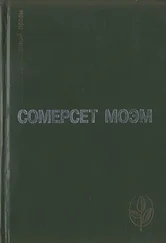Уильям Моэм - Orientations
Здесь есть возможность читать онлайн «Уильям Моэм - Orientations» весь текст электронной книги совершенно бесплатно (целиком полную версию без сокращений). В некоторых случаях можно слушать аудио, скачать через торрент в формате fb2 и присутствует краткое содержание. Год выпуска: 2014, Издательство: epubBooks Classics, Жанр: Классическая проза, на английском языке. Описание произведения, (предисловие) а так же отзывы посетителей доступны на портале библиотеки ЛибКат.
- Название:Orientations
- Автор:
- Издательство:epubBooks Classics
- Жанр:
- Год:2014
- ISBN:нет данных
- Рейтинг книги:5 / 5. Голосов: 1
-
Избранное:Добавить в избранное
- Отзывы:
-
Ваша оценка:
- 100
- 1
- 2
- 3
- 4
- 5
Orientations: краткое содержание, описание и аннотация
Предлагаем к чтению аннотацию, описание, краткое содержание или предисловие (зависит от того, что написал сам автор книги «Orientations»). Если вы не нашли необходимую информацию о книге — напишите в комментариях, мы постараемся отыскать её.
Orientations — читать онлайн бесплатно полную книгу (весь текст) целиком
Ниже представлен текст книги, разбитый по страницам. Система сохранения места последней прочитанной страницы, позволяет с удобством читать онлайн бесплатно книгу «Orientations», без необходимости каждый раз заново искать на чём Вы остановились. Поставьте закладку, и сможете в любой момент перейти на страницу, на которой закончили чтение.
Интервал:
Закладка:
At night he slept on a haystack, with the blue sky, star–bespangled, for his only roof, and dreamed luxurious dreams…. The mile–stones flew past one another as he strode along, two days, three days, four days. On the fifth, as he reached the summit of a little hill, he saw a great expanse of light shining in the distance, and the sea glittered before him like the bellies of innumerable little silver fishes. He went down the hill, up another, and thence saw Plymouth at his feet; the masts of the ships were like a great forest of leafless trees…. He thanked his stars, for one's imagination is all very well for a while, and the thought of one's future prowess certainly shortens the time; but roads are hard and hills are steep, one's legs grow tired and one's feet grow sore; and things are not so rose–coloured at the end of a journey as at the beginning. Amyntas could not for ever keep thinking of beautiful princesses and feats of arms, and after the second day he had exhausted every possible adventure; he had raised himself to the highest possible altitudes, and his aristocratic amours had had the most successful outcome.
He sat down by a little stream that ran along the roadside, and bathed his aching feet; he washed his face and hands; starting down the hill, he made his way towards the town and entered the gate.
VII
Amyntas discovered Captain Thorman of the good ship Calderon drinking rum punch in a tavern parlour. In those days all men were heroic…. He gave him the parson's letter.
'Well, my boy,' said the captain, after twice reading it; 'I don't mind taking you to Cadiz; I daresay you'll be able to make yourself useful on board. What can you do?'
'Please, sir,' answered Amyntas, with some pride, 'I know Latin and Greek; I am well acquainted with Horace and Tully; I have read Homer and Aristotle; and added to this, I can read the Bible in the original Hebrew.'
The captain looked at him.
'If you talk to me like that,' he said, 'I'll shy my glass at your head.' He shook with rage, and the redness of his nose emitted lightning sparks of indignation; when he had recovered his speech, he asked Amyntas why he stood there like an owl, and told him to get on board.
Amyntas bowed himself meekly out of the room, went down to the harbour, and bearing in mind what he had heard of the extreme wickedness of Plymouth, held tightly on to his money; he had been especially warned against the women who lure the unwary seaman into dark dens and rob him of money and life. But no adventure befell him, thanks chiefly to the swiftness of his heels, for when a young lady of prepossessing appearance came up to him and inquired after his health, affectionately putting her arm in his, he promptly took to his legs and fled.
Amyntas was in luck's way, for it was not often that an English ship carried merchandise to Spain. As a rule, the two powers were at daggers drawn; but at this period they had just ceased cutting one another's throats and sinking one another's ships, joining together in fraternal alliance to cut the throats and sink the ships of a rival power, which, till the treaty, had been a faithful and brotherly ally to His Majesty of Great Britain, and which our gracious king had abandoned with unusual dexterity, just as it was preparing to abandon him….
As Amyntas stood on the deck of the ship and saw the grey cliffs of Albion disappear into the sea, he felt the emotions and sentiments which inevitably come to the patriotic Englishman who leaves his native shore; his melancholy became almost unbearable as the ship, getting out into the open sea, began to roll, and he drank to the dregs the bitter cup of leaving England, home, beauty—and terra firma . He went below, and, climbing painfully into his hammock, gave himself over to misery and mal–de–mer .
Two days he spent of lamentation and gnashing of teeth, wishing he had never been born, and not till the third day did he come on deck. He was pale and weak, feeling ever so unheroic, but the sky was blue and the ship bounded over the blue waves as if it were alive. Amyntas sniffed in the salt air and the rushing wind, and felt alive again. The days went by, the sun became hotter, and the sky a different, deeper blue, while its vault spread itself over the sea in a vaster expanse. They came in sight of land again; they coasted down a gloomy country with lofty cliffs going sheer into the sea; they passed magnificent galleons laden with gold from America; and one morning, when Amyntas came on deck at break of day, he saw before him the white walls and red roofs of a southern city. The ship slowly entered the harbour of Cadiz.
VIII
At last! Amyntas went on shore immediately. His spirit was so airy within him that he felt he could hover along in the air, like Mr Lang's spiritualistic butlers, and it was only by a serious effort of will that he walked soberly down the streets like normal persons. His soul shouted with the joy of living. He took in long breaths as if to breathe in the novelty and the strangeness. He walked along, too excited to look at things, only conscious of a glare of light and colour, a thronging crowd, life and joyousness on every side…. He walked through street after street, almost sobbing with delight, through narrow alleys down which the sun never fell, into big squares hot as ovens and dazzling, up hill and down hill, past ragged slums, past the splendid palaces of the rich, past shops, past taverns. Finally he came on to the shore again and threw himself down in the shade of a little grove of orange trees to sleep.
When he awoke, he saw, standing motionless by his side, a Spanish lady. He looked at her silently, noting her olive skin, her dark and lustrous eyes, the luxuriance of her hair. If she had only possessed a tambourine she would have been the complete realisation of his dreams. He smiled.
'Why do you lie here alone, sweet youth?' she asked, with an answering smile. 'And who and what are you?'
'I lay down here to rest, lady,' he replied. 'I have this day arrived from England, and I am going to Van Tiefel, the merchant.'
'Ah! a young English merchant. They are all very rich. Are you?'
'Yes, lady,' frankly answered Amyntas, pulling out his handful of gold.
The Spaniard smiled on him, and then sighed deeply.
'Why do you sigh?' he asked.
'Ah! you English merchants are so fascinating.' She took his hand and pressed it. Amyntas was not a forward youth, but he had some experience of English maidens, and felt that there was but one appropriate rejoinder. He kissed her.
She sighed again as she relinquished herself to his embrace.
'You English merchants are so fascinating—and so rich.'
Amyntas thought the Spanish lady was sent him by the gods, for she took him to her house and gave him melons and grapes, which, being young and of lusty appetite, he devoured with great content. She gave him wine—strong, red, fiery wine, that burned his throat—and she gave him sundry other very delightful things, which it does not seem necessary to relate.
When Amyntas on his departure shyly offered some remuneration for his entertainment, it was with an exquisite southern grace that she relieved him of his ten golden guineas, and he almost felt she was doing him a favour as she carelessly rattled the coins into a silken purse. And if he was a little dismayed to see his treasure go so speedily, he was far too delicate–minded to betray any emotion; but he resolved to lose no time in finding out the offices of the wealthy Tiefel.
IX
But Van Tiefel was no longer in Cadiz! On the outbreak of the treaty, the Spanish authorities had given the Dutch merchant four–and–twenty hours to leave the country, and had seized his property, making him understand that it was only by a signal mercy that his life was spared. Amyntas rushed down to the harbour in dismay. The good ship Calderon had already sailed. Amyntas cursed his luck, he cursed himself; above all, he cursed the lovely Spanish lady whose charms had caused him to delay his search for Van Tiefel till the ship had gone on its eastward journey.
Читать дальшеИнтервал:
Закладка:
Похожие книги на «Orientations»
Представляем Вашему вниманию похожие книги на «Orientations» списком для выбора. Мы отобрали схожую по названию и смыслу литературу в надежде предоставить читателям больше вариантов отыскать новые, интересные, ещё непрочитанные произведения.
Обсуждение, отзывы о книге «Orientations» и просто собственные мнения читателей. Оставьте ваши комментарии, напишите, что Вы думаете о произведении, его смысле или главных героях. Укажите что конкретно понравилось, а что нет, и почему Вы так считаете.










